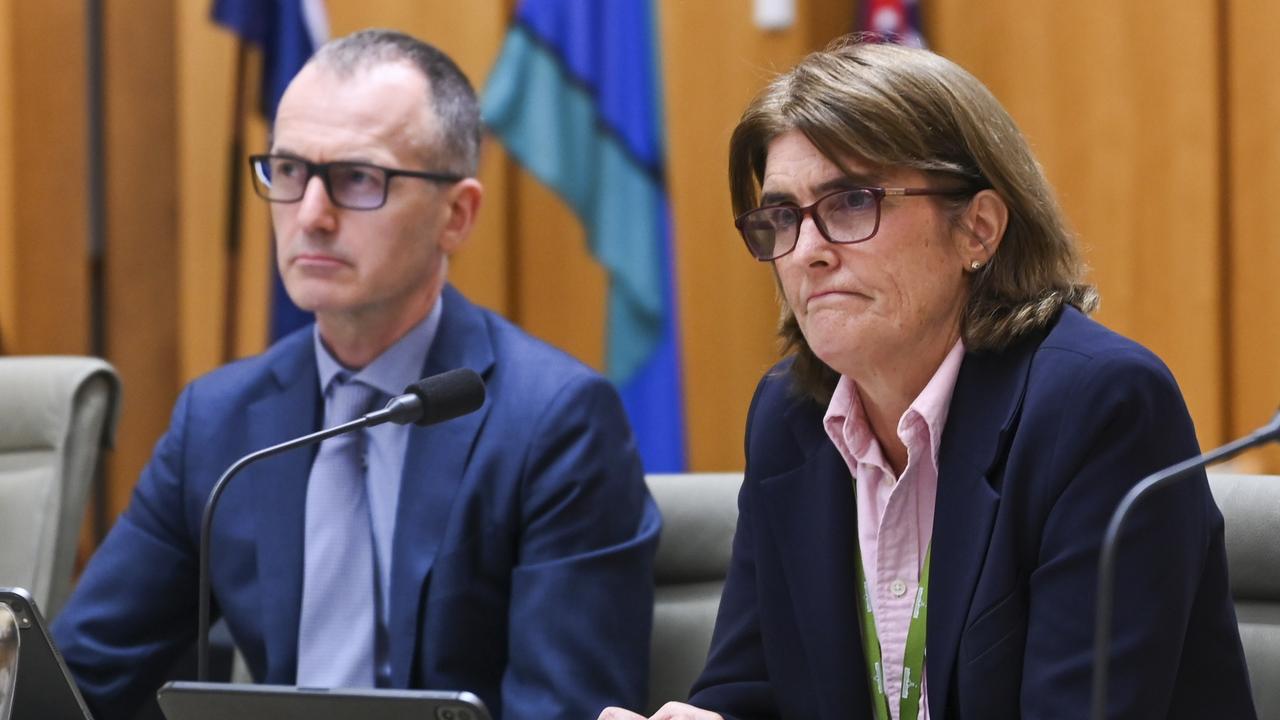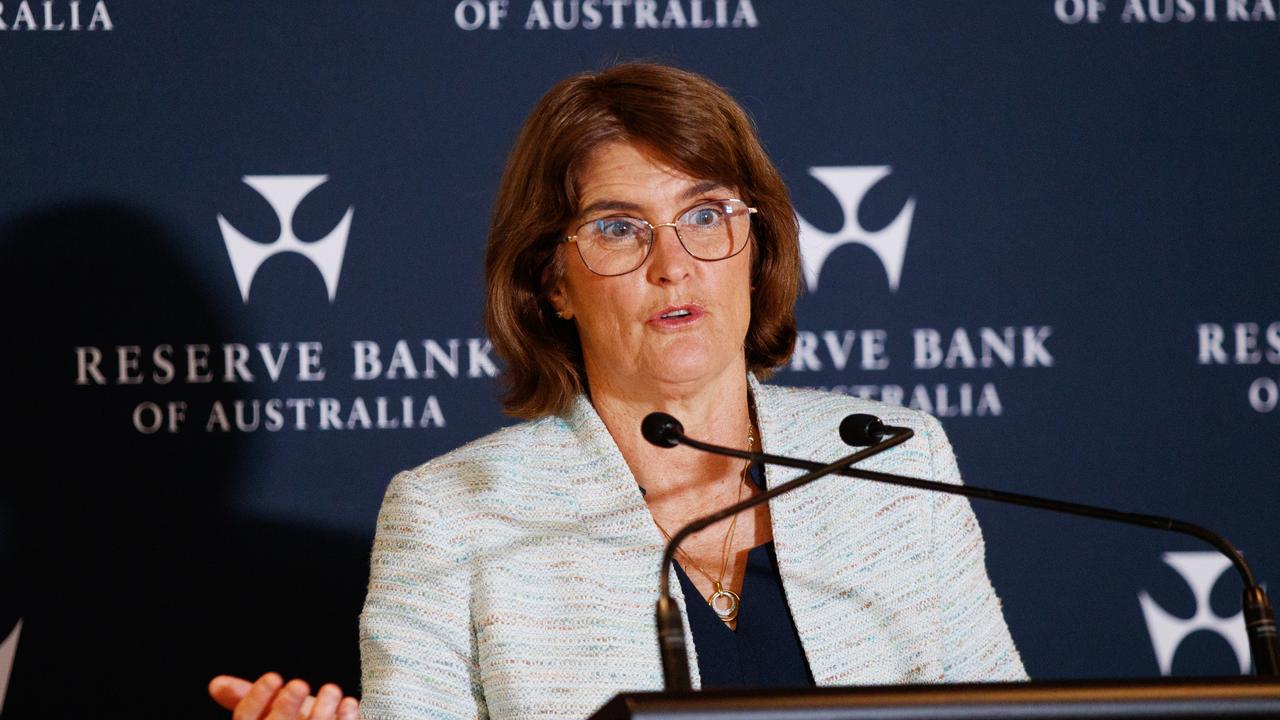RBA warns Donald Trump’s promised China tariffs would have an “adverse effect” on Australia
The central bank says if incoming US President Donald Trump were to impose his promised tariff on China, there could be big consequences for Australia.
The Reserve Bank claims there could be an “adverse effect” on Australia if incoming US President Donald Trump were to impose tariffs of up to 60 per cent on China.
During senate estimates on Wednesday, RBA assistant governor Christopher Kent said it was a “big concern“ whether Mr Trump follows through on the levies of Chinese-made goods, but added the full-effect was still unclear.
The levies would be higher than the 7.5 to 25 per cent implemented during his first time.
They are considered part of a broader suite of measures to boost the US economy, which also includes broad tariff increases on all imports of up to 10 per cent, cutting taxes, slashing immigration, and deregulation.
“The big concern is large tariffs on China, which may have an adverse effect on us,” he said.
“So is it right to characterise the RBA position as of this morning as unclear in terms of what the United States election outcome means for inflation outlooks.”
Speaking more broadly, he said Mr Trump’s promised tariffs would likely ”push up” the US dollar and create less demand by the US for goods produced in other markets.
“But it means less demand by the US for global goods, so that’s sort of a negative for growth elsewhere,” he said.

While RBA governor Michelle Bullock confirmed the central bank has conducted modelling and analysis on how a Trump presidency would affect inflation and the cash rate domestically, she stated multiple times that it was too early to discern firm forecasts.
“We have a broad understanding of the way some of these policies, if they are implemented, will work out, but we haven’t done very explicit scenario analysis,” she said.
“There’s things going in all sorts of directions here. It might be inflationary in some ways, but it might be deflationary.”
Ms Bullock said if China was badly affected, then Australia would be too.
“So it’s not easy to dissect what’s going to happen with all of this, particularly as well, we don’t know what’s going to happen,” she said.
Community organisations under the pump
Amid high inflation pushing up the prices of essential goods, Ms Bullock noted services at the coal face of the cost-of-living crisis have noted new cohorts of people, and increased stress from customers, and predicted the strain to continue over the “next few months”.
She reiterated that inflation was “compounding this whole issue”.
“They don’t have the money to buy essentials, and that’s what we’re seeing from community organisations,” she said.
“So food banks are seeing people turn up who they’ve never seen turn up. It’s kids going to school without breakfast or can’t afford it.”
Ms Bullock said it was likely the pain would continue until inflation eases.

“The point about inflation is, we’ve had high inflation but prices aren’t coming down,” she said.
“They’re up at a higher level now permanently, and that is going to continue to eat into people’s incomes.”
However she said an increase in real income might offer a reprieve for some households, but not all.
“There will still be people that will really be doing it tough, but as real income starts to turn around, I think that will help,” she said.
RBA acknowledges ‘public angst’ on card surcharges
The RBA was also quizzed on Anthony Albanese’s promise to ban surcharges on debit card payments for small businesses and consumers.
Announced in October, the government have the Australian Competition and Consumer Commission (ACCC) $2.1m of new funding to tackle excessive surcharges, and said it would move to introduce new laws to ban surcharging from January 1, 2026, pending the RBA’s consultation.
Ms Bullock acknowledged there was “a lot of public angst,” about the fees amid a cost of-living crisis, however said it was “complicated” and required the RBA to undertake the needed consultation.
As it stands, the reserve bank is undertaking consultation, which could lead to the bank, which is responsible for regulating payment systems, to either remove or create a new regulation.
However the timeline on when surcharges would be banned was unclear, with the RBA to firm up its proposal sometime next year.
“It depends on what decision is made, if the if it requires more regulation, then we’ll have to put in place that regulation,” she said.
“If it requires removing regulation, that might be a little bit easier.”
Bullock backs government spending policy
Ms Bullock also backed the government’s cost-of-living policies, stating that while they’ve added to spending, it hasn’t necessarily added to inflation.
“I would just say that I think the attitude at the moment that I am hearing from the government is the right one,” she told the committee.
“They’re conscious that they’ve got to have fiscal policy working for the Australian people, but they’re also conscious that they’ve got to use it in a way that doesn’t exacerbate the inflation problem.
“The government knows, as we know, as the Australian population knows that inflation is the thing that’s hurting everyone and if we don’t get inflation under control, then it’s worse for everyone.”
More to come




